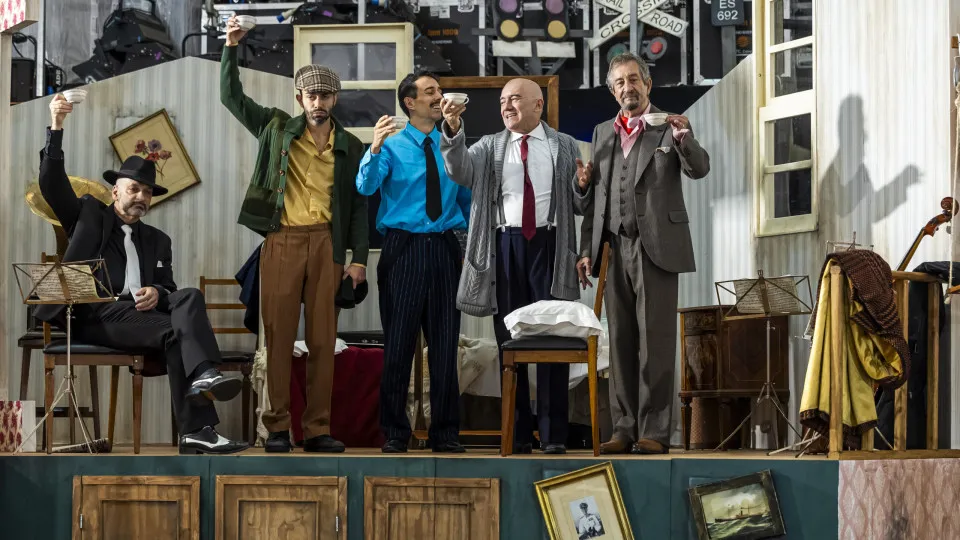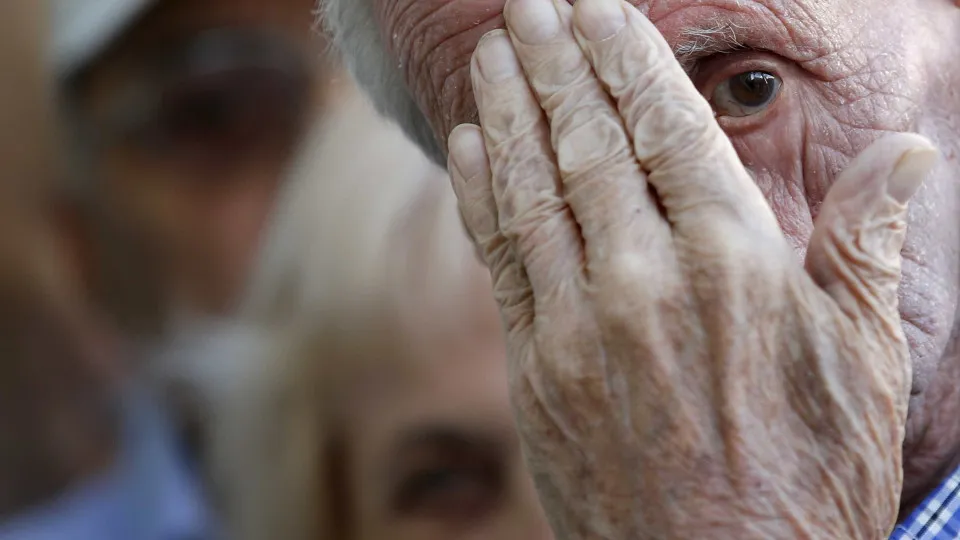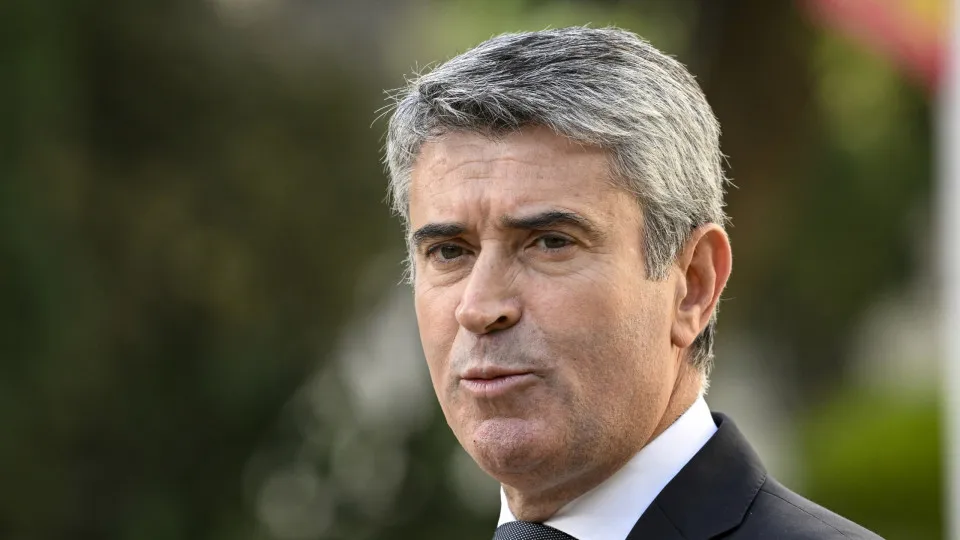
Adapted from the classic film of the same name, where five criminals plan a bank heist and rent rooms from an elderly woman under the guise of being a musical quintet, the play debuts on the 29th of this month at Teatro Armando Cortez in Lisbon. This marks the 70th anniversary of the film’s release and the 100th birthday of British actor Peter Sellers.
With translation, staging, set design, and costumes by Frederico Corado, the choice of the play is driven by several factors. Corado expressed to Lusa his “emotional connection” to the film, to which he was introduced at a young age by his father, filmmaker and critic Lauro António.
Additionally, in 2013, Corado attended the play in London, which greatly inspired him to consider producing it locally. He discussed the project with actor José Raposo, believing Raposo was perfect for the role played by Alec Guinness in the film. This conversation sparked the idea of producing the play in Portugal.
After twelve years of development, the production is now set to hit the stage with a cast chosen “based on emotional connections,” Corado emphasized.
“These actors not only embody their characters excellently but are also a group of people who have known each other for many years and work well together,” stated the director, highlighting that they deliver “extraordinary performances.”
The play also features three special appearances from Casa do Artista residents: actresses Natália Guimarães, Lourdes Lima, and Teresa Sanches, the latter of whom has extensive experience in theater as a prompter, assistant director, producer, and lighting operator.
“Bringing back Florbela Queiroz in a significant role” was “insisted upon by José Raposo,” as was the involvement of Carlos Areia, who returns in a major role after performing a small role two years ago, noted Corado.
This production mirrors the film in having a “very curious aspect,” as it features a seasoned group of actors and revolves around a storyline where “an old woman teaches a survival lesson to five thieves.”
“It’s a very relevant lesson today,” Corado explained, emphasizing the play’s appreciation for the wisdom of seniors and the high moral standards of Mrs. Whitmore, who resists corruption attempts, ultimately imparting lessons even to the criminals.
José Raposo shared his enthusiasm for the show, describing it as “a delightful piece of dark English humor” with distinctive Irish touches, which are rare in their productions.
“It’s a black comedy with a sophisticated tone and humor, not just a slapstick comedy. The cast is fantastic, and there’s a deep connection among the actors,” Raposo noted, expressing his desire to include “the great Florbela Queiroz.”
“And she was thrilled when we spoke about it. Having her on board is a great privilege,” Raposo emphasized.
When asked if the play carries a message for today, Raposo agreed, citing issues like “fake news and the ease with which people are misled on social media.” “It’s a message to avoid being deceived,” he observed.
“It’s about staying vigilant, not believing everything you see or hear, and most importantly, staying informed,” he stressed.
Carlos Areia expressed his delight in working, regardless of the role, and acknowledged the privilege of being part of such a wonderful production, having enjoyed the original film earlier in his life.
“It’s an honor and a privilege. Reaching this age is already a blessing, and working with such wonderful people enhances this feeling,” he reflected.
For Florbela Queiroz, who celebrates 68 years in her career just before the premiere, participating in the show “is like coming home.”
“When Zé [Raposo] mentioned it to me, I said, ‘Zé, honestly, I’m 82 now, and we may never have this chance again, so let’s do it here,'” she said, relating to the comedy. “Let’s do what I trained for and love,” Queiroz concluded.
The play “A Quintet of Death,” adapted by Graham Linehan and translated by Frederico Corado, features Florbela Queiroz, José Raposo, Carlos Areia, Heitor Lourenço, Miguel Raposo, Ricardo Raposo, António Machado, and Fátima Severino.
Produced by UAU, the performance runs at Teatro Armando Cortez until March 22, 2026, with shows from Wednesday to Saturday at 9:00 PM and on Sundays at 6:00 PM. It will then tour, with scheduled performances at Porto’s Teatro Sá da Bandeira starting June 18, 2026.




